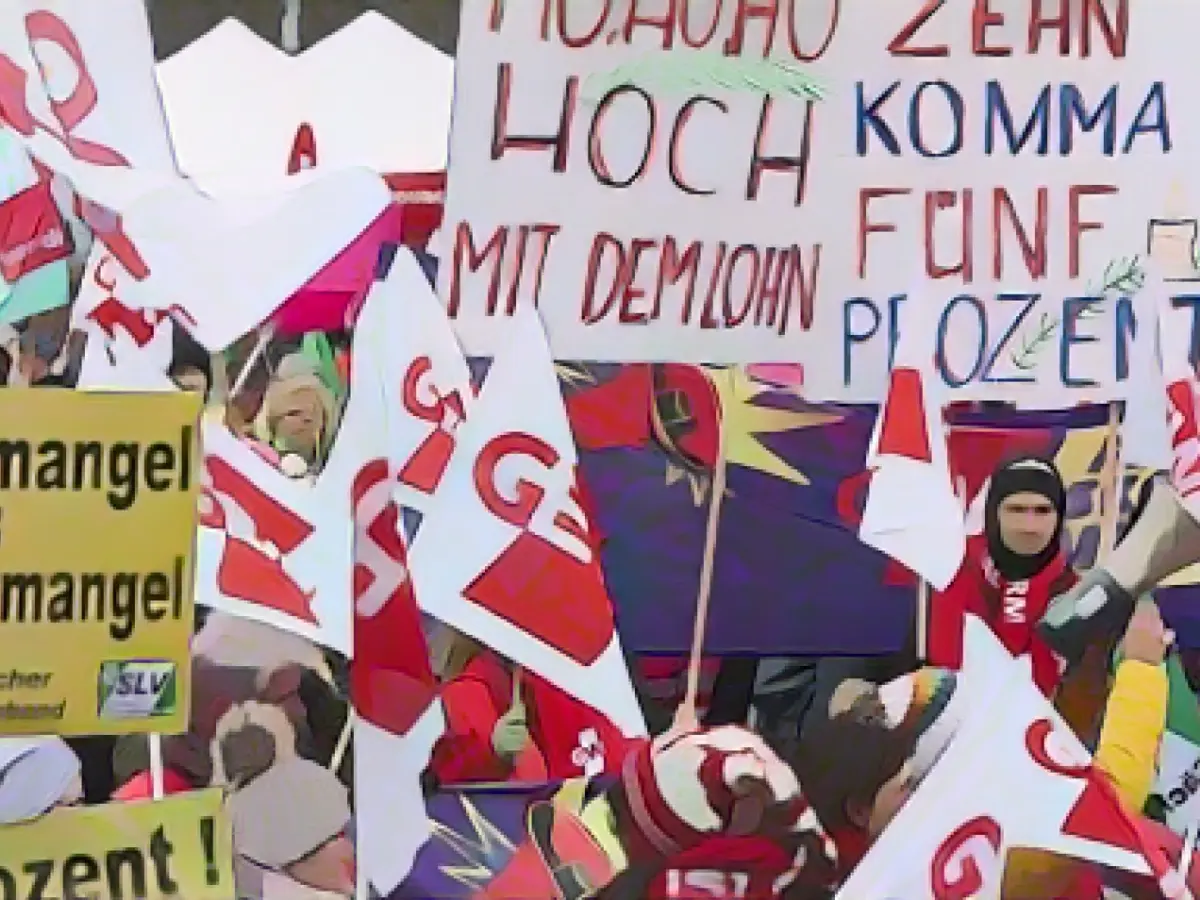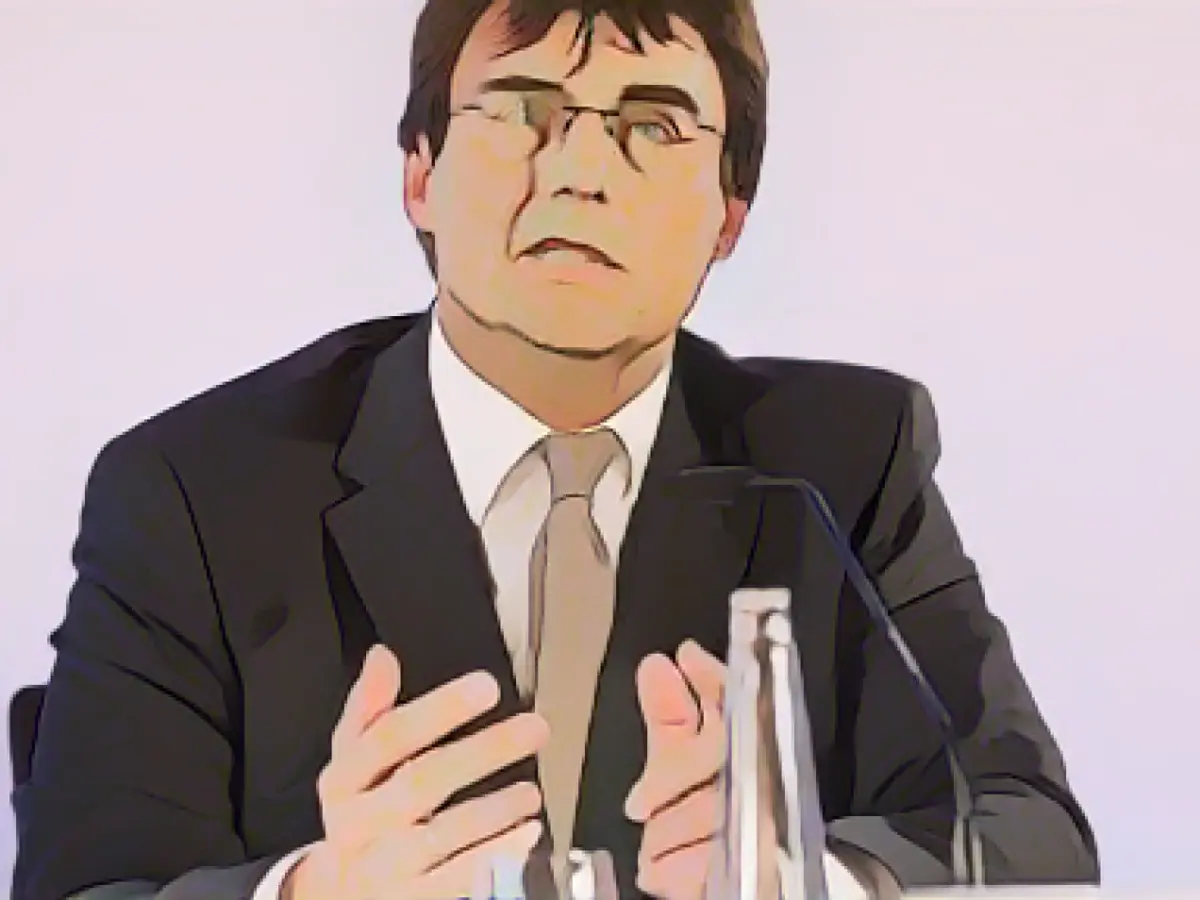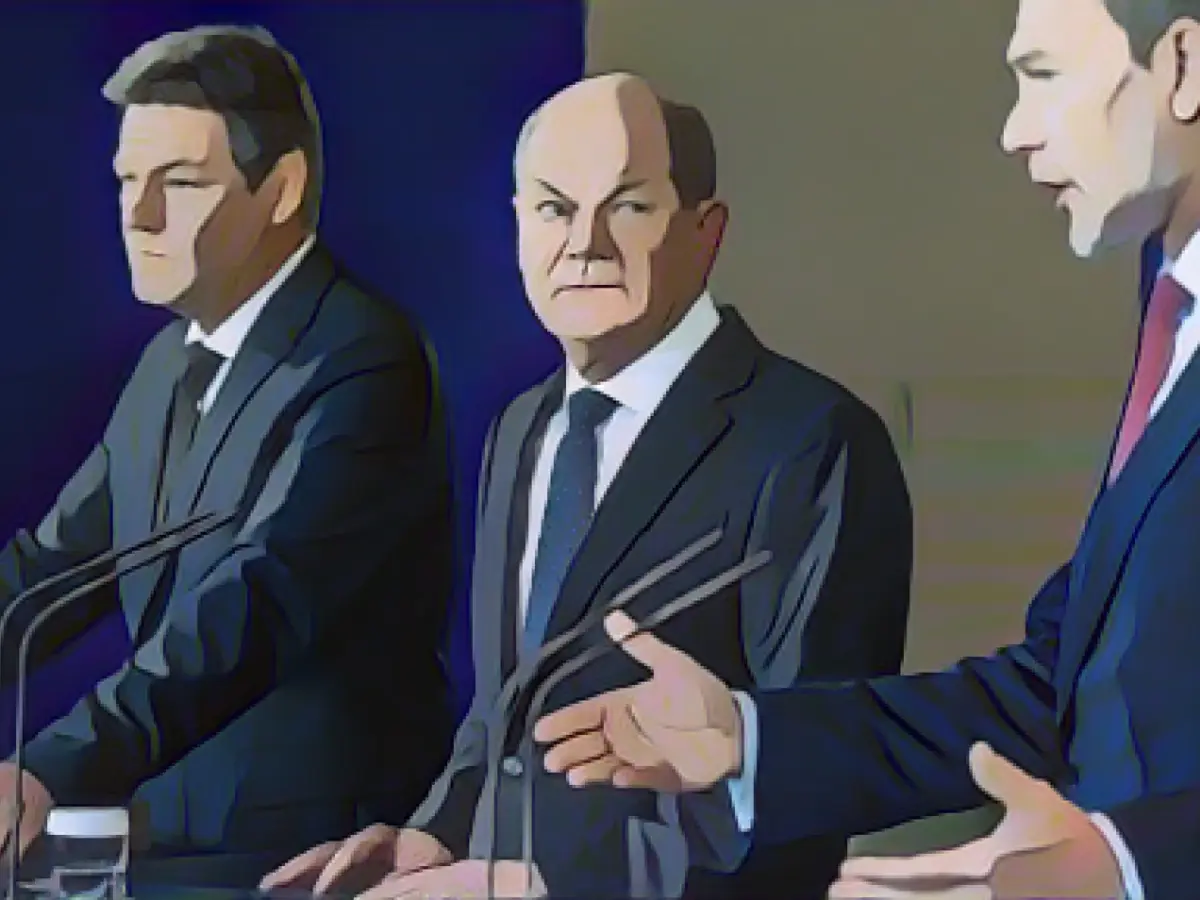Thousands of Public Sector Workers Rally in Dresden for Better Conditions and Pay Raises
Wednesday saw a significant display of dissatisfaction from public sector employees in Saxony, with countless individuals gathering outside the Ministry of Finance in Dresden to demand improved wages and working conditions. Teachers, university staff, and even police officers and stagehands from the Saxon State Theatres joined forces for this high-energy demonstration.
The organizers claimed a crowd of 4,500 participants, filling the square in front of the Ministry of Finance to capacity. The rally was set in motion by the rhythmic sound of drums and fueled by intermittent shouts of '10.5%,' which represented the unions' call for a 10.5% wage increase, at least 500 euros per month.
Honoring the Fallen
Before the protest began in earnest, there was a moment of silence to commemorate a tragic school bus accident that occurred in the Ore Mountains on Tuesday, resulting in the death of one student and injuries to several others.
Addressing the Crisis
Markus Schlimbach, head of the German Trade Union Federation in Saxony, took the podium to voice concerns about the increasing number of employees opting for private-sector jobs due to better compensation. He lamented 500,000 vacancies across Germany, advocating for better working conditions and salaries to retain talent in the public sector.
Burkhard Naumann, head of the Education and Science Trade Union, directed his remarks to Saxony's Finance Minister Hartmut Vorjohann (CDU), calling out those who had not tabled an offer after two rounds of negotiations and intentionally rejected all unions' demands. Naumann emphasized that wages must keep pace with price increases and pointed to the ongoing education crisis, calling for more resources in this vital sector.
Student Employees' Plight
Lea Bellmann, a representative from the TV Stud initiative, lobbied for a collective bargaining agreement for student employees. Pointing to the precarious conditions faced by student workers, who were often underpaid or forced to work illegally, Bellmann denounced wage evasion at German universities.
Hopes for a Resolution
The Ministry of Finance in Dresden served as a stage for much-needed dialogue, with public sector employees accusing authorities of turning a blind eye to their concerns regarding wages, working conditions, and job security. The next round of collective bargaining negotiations is set for March 14-16 in Potsdam, and if a resolution is not reached, further strikes may ensue.
Further Reading
- [Tackling the Education Crisis](*:education-crisis)
- [Collective Bargaining Conflicts Impacting Public Services and Universities](*:public-services-strike)
- [The Overburdened Educators: School Leaders' Struggles with Workload and Lack of Support](*:school-leaders)
- There is growing unrest in Germany's public sector, with teachers and university staff rallying outside the Ministry of Finance in Dresden for better salary increases and working conditions.
- The protesters, numbering around 4,500, included not only teachers and university staff but also police officers, stagehands, and other public employees.
- The demonstrators, led by union representatives, advocated for a 10.5% wage increase and better working conditions to retain talent, as many public sector employees are leaving for private-sector jobs with better pay.
- The rally was an opportunity for public sector employees to draw attention to serious issues facing the education system, including budget cuts and inadequate funding for schools and universities.
- The tension between public sector employees and authorities is likely to continue, with further strikes a possibility, and forthcoming negotiations in Potsdam presenting an opportunity for resolution.
Source:
Enrichment Data:
The ongoing collective bargaining conflicts in Germany cover various sectors, including public services and higher education. The unrest among public sector employees is driven by a combination of issues, including:
Transport Workers' Strike
- Cause: Public transportation workers are demanding higher salaries and better working conditions, with Verdi, the union leading the negotiations, seeking an 8% wage increase or at least €350 per month.
- Impact: Over 70 companies across six federal states may suffer disruptions in public transport services due to the strike, affecting the subway, bus, and tram networks, particularly in Berlin.
University Staff Demands
- Cause: Financially strapped universities in Berlin have seen budget cuts and hiring freezes due to the city's €3 billion deficit, resulting in reduced enrollment for less-popular subjects and having "devastating" effects on research and education quality at the Universität der Künste (UdK).
- Impact: The budget cuts than lead to a loss of opportunities for students, and the shortage of professors can negatively impact the quality of education.
Upcoming Negotiations and Potential Strikes
The next round of negotiations between unions and authorities is scheduled for March 14-16 in Potsdam, but if no compromise is reached, further strikes are possible. Non-medical staff at hospitals in Berlin are planning two-day strikes on February 13 and 14, potentially impacting elective surgeries.
The strikes and negotiations are crucial in addressing these concerns and resolving collective bargaining conflicts in Germany, ensuring fair compensation for public sector employees while maintaining high-quality education and services for citizens.








